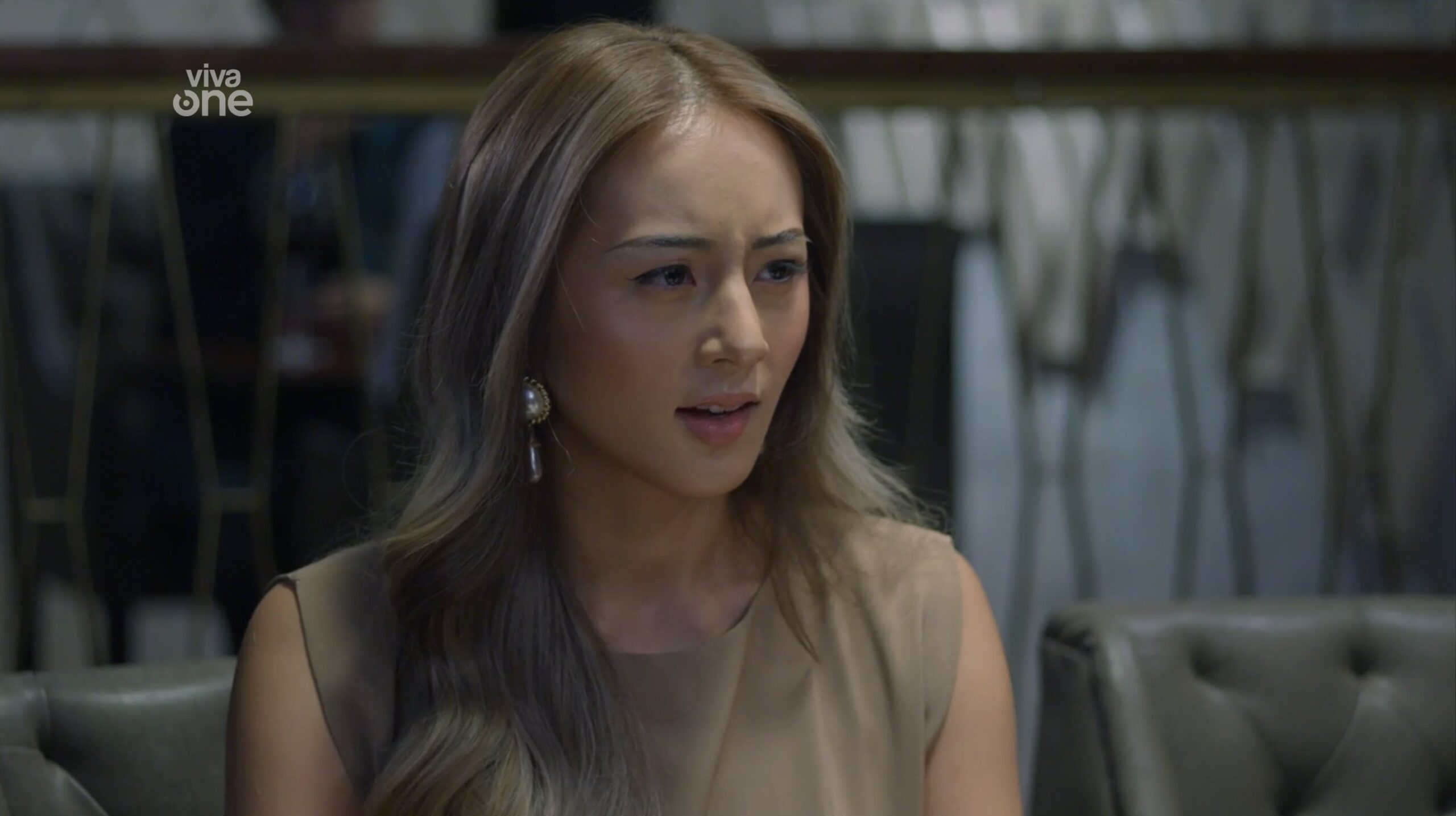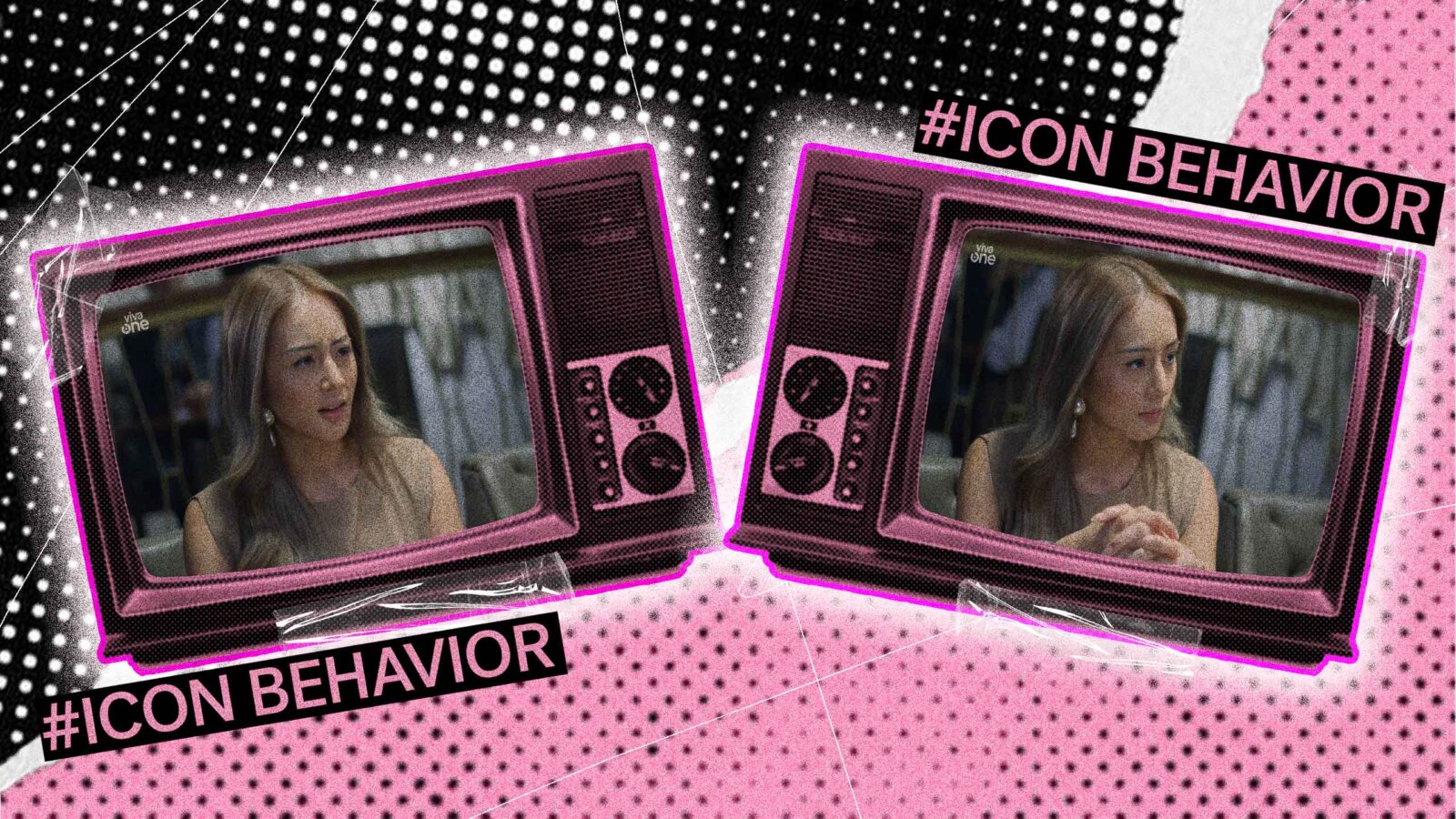We all know Chasing In The Wild’s Elyse is a strong, independent woman, but her response to a misogynist comment made us love her even more.
Related: Feel Your Feels: Accepting Your Allness with Hyacinth Callado
Spoilers ahead for Chasing In The Wild.
Are you sick of women’s worth being measured by their relationship status? Are you sick of women being belittled and undervalued in society in comparison to men? Well, so is Elyse Ledezma.
On Episode 15 of Vivaone series Chasing In The Wild (part of the “Univerkada” universe of shows based on a series of Wattpad novels by Gwy Saludes), Elyse Ledezma (Hyacinth Callado) went off about womanhood and independence and spoke nothing but facts.
In the episode, the businesswoman and all-around boss lady went to dinner with a coworker Austin (Akihiro Blanco) and his overbearing, creepy father Anthony (Rey Abellana) and they got to talking about Elyse’s relationship status. For context, Elyse is single and broken up from her former boyfriend of five years Sevi Camero (Gab Lagman), but the two work together and secretly live together in their old apartment. At the dinner, Anthony started talking about how women can’t survive without men and how Elyse needs a man in her life. Cue the eyerolls. But let’s get into it.
GO OFF, ELYSE
“At the end of the day, Elyse here is still a woman,” she was told. “And she needs a man.” Elyse’s face immediately changed, and audience members leaned forward in anticipation of her rebuttal.
“With all due respect,” she starts off. What a patient, diplomatic woman. “A woman does not need a man to live.” Clearly, Anthony was implying that Elyse, and women in general, are incapable of living, thriving, and succeeding without a man in their life—thereby insinuating that in a relationship, a man has more power than a woman.
In his perspective, a woman needs a man to provide for her and she can’t do anything of significance if she’s not linked to a man. However, in fact, plenty of women have lived their best lives without romantic partners or children of their own. Some of them have even changed the world.
THIS SEQUENCE!!! LOUDER FOR THE PEOPLE AT THE BACK MY ELYSE! I love the fact that Hya was the one who delivered these lines cause it just suited her personality and beliefs. WOMEN DO NOT NEED MEN TO BE SUCCESSFUL OR TO FEEL FULFILLED!!! #CITW | #ElVi | #HyGab pic.twitter.com/hplUUWM3Uw
— max 🪐 (@chaweei) November 22, 2024
Anthony then spouts off words women have been hearing all their lives, about how they need men in their lives, how they’d want to settle down at some point in their life, how she “can’t be single forever,” how the company needs an “heir” (nepotism much?), and how women nowadays are prioritizing themselves over having a family—have we seen the state of the economy and how women are treated in this society? Can you really blame them?
“I really don’t believe a woman’s happiness and success are contingent on having a man in their life. Women are fully capable of thriving on their own,” Elyse responds. “Women are not made to be slaves of love, Tito. Kayang kaya namin mag-isa.” Now that deserves a slow clap and standing ovation.
She continues, “Maybe I will marry someone someday, or maybe I’ll stay single forever—now that is my choice.” Now Elyse Ledezma the CEO is no man-hating, celibate, anti-love preacher, and unlike the person sat across the table from her, she’s well-aware of the fact that women have independence and agency. If she were to love and settle down, it’s going to be a decision she makes because she desires it, not because she thinks it’s the way women should live their lives.
MISOGYNY MUCH?

This expression of sexism and misogyny shown through this scene in Chasing In The Wild is incredibly familiar, not just often depicted in pop culture, but also far more often seen in this reality where patriarchal norms are still prevalent. There’s even rising discourse about how sexism and misogyny are getting worse all around the globe.
The notion that women are incapable of living full lives without having a romantic partner—in this context, male, particularly—dismisses their ability, their independence, and their agency.
Jo March’s (Saoirse Ronan) spiel in Greta Gerwig’s Little Women (2019) is another lamentation against these patriarchal ideals—all the way back to the film’s time period of the late 1800s. “Women have minds and souls as well as hearts, ambition and talent as well as beauty and I’m sick of being told that love is all a woman is fit for.” It begs the question—how far have we really gotten in terms of equality?
#SaoirseRonan received her 4th Oscar nomination for her performance in #LittleWomen at the age of 25, making her the second-youngest performer, male or female, to ever receive that number of Oscar nods. pic.twitter.com/4ZoG38QiY3
— Screenplayed (@Screenplayed) July 22, 2020
Though Jo’s spiel continued with “…but I’m so lonely,” and Elyse goes on to get back together with Sevi, whom she loves, their points are not to be dismissed or diluted. Throughout history, women have been undermined, dismissed, limited, and unjustly treated just by virtue of being women. Anthony’s words are a desperate attempt to stifle a woman’s power and enforce patriarchal structures—structures that Elyse’s agency and self-determination threaten. But Elyse was simply not having it. Queen.
People need people in a variety of ways, yes, and companionship and love are great—they’re absolutely not things in life to completely do away with. But it’s a whole different thing when a person’s worth and value is tied to their relationship status or even their ability to produce an heir. That’s just offensive. As Elyse said, a woman’s fulfillment and success are not dependent on her having a partner or her own family. She is a fully realized human being capable of making her own decisions, running her own life, and making an impact on the world. Here’s to more people truly understanding her words.
Continue Reading: 6 Fun Facts About University Series Breakout Actress Hyacinth Callado





